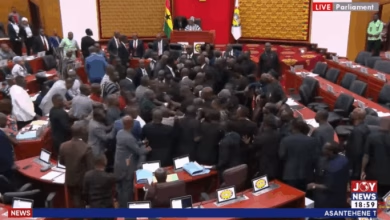The United Nations has called for an independent investigation following the discovery of dozens of bodies and evidence of serious human rights abuses at detention sites controlled by militias in Tripoli, Libya.
UN High Commissioner for Human Rights, Volker Türk, said he was “shocked” by the revelations, which point to grave violations occurring at facilities operated by the Libyan militia group known as the Stabilization Support Apparatus (SSA). He urged Libyan authorities to immediately seal off the sites and conduct a “prompt, independent, impartial, and transparent” investigation.
The SSA, established in 2021, is a coalition of militias that holds significant power in western Libya. It has previously faced accusations of atrocities during the years of conflict following the fall of Moammar Gadhafi in 2011.
“These findings confirm long-standing concerns raised by the UN Support Mission in Libya (UNSMIL) and the former UN Independent Fact-Finding Mission,” Türk said. He noted that past reports had already documented torture, enforced disappearances, and other violations linked to such sites.
Between May 18 and May 21, reports to the UN detailed the discovery of 10 burned bodies at SSA headquarters in Tripoli’s Abu Salim neighborhood. An additional 67 decomposing corpses were found stored in refrigeration units at two hospitals in the capital—Abu Salim and Al Khadra—where power outages had left many bodies in advanced stages of decay. A burial site was also reportedly uncovered inside the Tripoli Zoo, also under SSA control.
Along with the bodies, investigators found what appeared to be torture instruments and possible evidence of extrajudicial killings. “Our worst fears are being confirmed,” Türk stated.
He emphasized the urgent need to preserve the evidence. “These locations must be sealed, and all potential evidence protected to ensure accountability. Those responsible must be brought to justice without delay and in accordance with international law.”
Türk also raised concerns that Libya’s forensic teams have not yet been granted access to the sites for exhumation and identification. He called on the Libyan authorities to allow the UN to access the locations to carry out its mandate and document the violations.
He condemned the spread of disturbing images and video footage of the bodies on social media, stressing the importance of protecting the dignity and privacy of the victims and respecting the rights of their families.
The gruesome discoveries come in the wake of the killing of SSA leader Abdulghani Kikli in May. His death sparked violent clashes between state security forces and armed factions in Tripoli, which led to protests demanding an end to militia violence. According to the UN, those protests were reportedly met with excessive force, resulting in casualties among civilians and police, and damage to public infrastructure, including hospitals.
Türk said the violent response raises “serious concerns” about respect for fundamental freedoms, including the right to protest and freedom of expression.
Libya has faced persistent instability since Gadhafi’s ouster in 2011, with the country fragmented and plagued by armed groups vying for control. Although a ceasefire agreement was reached in October 2020, the nation remains politically divided, and Tripoli continues to be a hotspot for militia activity.
